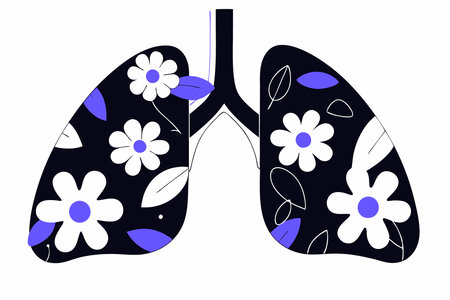Understanding Multiple Morbidities: The Challenges Faced by GPs
In the UK, the landscape of general practice is evolving rapidly as more patients present with multiple long-term conditions, often referred to as multiple morbidities. This shift has placed unique demands on GPs, who are now at the forefront of managing increasingly complex health profiles. Unlike single-condition care, managing several chronic illnesses requires a nuanced understanding of how these conditions interact, both medically and in terms of their impact on daily life. For GPs, this means moving beyond standard treatment protocols and embracing a holistic, patient-centred approach. The challenge lies not only in coordinating care across various specialisms but also in addressing the social and psychological factors that can influence rehabilitation outcomes. In this context, planning effective rehabilitation becomes a multifaceted process, requiring careful consideration of each individual’s priorities, lifestyle, and support networks. As the prevalence of multiple morbidities continues to rise within UK communities, it is essential for GPs to remain adaptable, compassionate, and resourceful when supporting patients through their rehabilitation journeys.
Holistic Assessment: Gathering Insights Beyond the Medical Record
When it comes to managing patients with multiple morbidities, general practitioners (GPs) in the UK recognise that effective rehabilitation planning extends far beyond clinical diagnoses. A truly holistic assessment involves seeing the individual as a whole person, appreciating their unique life stories, and understanding the intricate tapestry of factors influencing their health and wellbeing.
The Value of Whole-Person Assessments
Whole-person assessments are essential for capturing not only medical needs but also social, emotional, and functional aspects. By taking time to listen to patient narratives—stories about daily routines, challenges, hopes, and fears—GPs gain invaluable insights that guide more personalised and realistic rehab plans. These conversations allow practitioners to see beyond symptoms, acknowledging how long-term conditions impact independence, mood, relationships, and sense of purpose.
Working Closely with Families and Carers
Involving families and carers is central to effective care planning. Their lived experience offers a window into the patients day-to-day reality, highlighting practical barriers or resources that may not be apparent during brief consultations. GPs often facilitate family meetings or care conferences to ensure everyone’s voice is heard, fostering a collaborative approach that honours both medical advice and personal preferences.
Understanding Social and Functional Needs
For many individuals living with complex conditions, social and functional needs can be just as significant as clinical concerns. Considerations such as housing quality, mobility within the home, access to community resources, financial stability, and social support networks all play crucial roles in shaping rehabilitation goals. GPs routinely use structured tools to assess these domains; an example summary is shown below:
| Assessment Domain | Key Questions | Potential Interventions |
|---|---|---|
| Social Support | Who helps you at home? Are you feeling isolated? | Link to befriending services or carer support groups |
| Mobility & Daily Living | Can you move safely around your home? | Referral to occupational therapy for adaptations |
| Mental Wellbeing | How are you coping emotionally? | Counselling or talking therapies referral |
| Financial Concerns | Are there worries about money or benefits? | Advice from Citizens Advice Bureau or social prescriber |
Towards Truly Person-Centred Care
This comprehensive approach ensures that rehab plans are not only medically appropriate but also respectful of each persons lived reality. In this way, GPs across the UK champion compassionate, tailored care—partnering with patients and those who care for them to navigate complexity with understanding and hope.

3. Collaborative Planning with Multidisciplinary Teams
In the UK, managing patients with multiple long-term conditions is never a solo endeavour. The strength of rehabilitation planning lies in the collaborative approach adopted by GPs and their colleagues across different disciplines. By working closely with physiotherapists, occupational therapists, social workers, and community nurses, GPs can ensure that every facet of a patient’s needs is considered, from physical mobility to social support and emotional wellbeing.
The Importance of Teamwork
This multidisciplinary teamwork means each professional brings their unique expertise to the table. For instance, physiotherapists focus on improving movement and strength, while occupational therapists help individuals adapt their daily activities for greater independence. Social workers can provide insight into community resources and support networks, ensuring patients do not fall through the gaps, and community nurses monitor ongoing clinical care at home.
Shared Goals for Patient-Centred Care
Effective collaboration starts with shared goals—maximising independence, dignity, and quality of life for those living with complex health needs. Regular case meetings, whether in person or virtually, facilitate open communication and coordinated action plans. These discussions allow each team member to update others on progress, flag up concerns early, and adjust interventions as the patient’s condition evolves.
The GP’s Role as Care Coordinator
As care coordinators, GPs often act as the linchpin in this process. They synthesise information from all professionals involved and make sure that no aspect of care is overlooked. Through their ongoing relationships with patients and families, GPs are uniquely placed to advocate for individuals’ preferences and priorities, ensuring that rehabilitation plans remain holistic and person-centred at every stage.
This emphasis on teamwork not only leads to more comprehensive care but also helps prevent burnout among professionals by sharing responsibilities. Ultimately, it reflects the NHS ethos of integrated care—working together for better outcomes for people facing the challenges of multiple morbidities.
4. Balancing Medical Management and Quality of Life Goals
In the context of managing patients with multiple morbidities, GPs in the UK face the delicate task of balancing clinical interventions with a genuine respect for each individual’s quality of life. This balance requires moving beyond a purely biomedical approach to embrace patient preferences, realistic goal setting, and shared decision-making—core values that underpin the NHS ethos of compassionate, person-centred care.
Central to this process is the prioritisation of what matters most to patients and their families. Rather than striving for aggressive interventions at all costs, GPs often guide conversations towards understanding what outcomes are truly meaningful for each person. For many, maintaining dignity, autonomy, and wellbeing may take precedence over extending life at any cost. This shift calls for honest discussions about prognosis, daily challenges, and the potential benefits and burdens of proposed treatments.
Shared Decision-Making in Practice
Shared decision-making is not a one-off event but an ongoing dialogue between GPs, patients, carers, and multidisciplinary teams. It involves presenting options clearly, exploring preferences, and setting goals that are both clinically appropriate and personally significant. The following table illustrates how these elements interact in practice:
| Aspect | Medical Management | Quality of Life Considerations |
|---|---|---|
| Treatment Choices | Optimising medications; considering polypharmacy risks | Minimising side effects; respecting patient wishes regarding treatments |
| Goal Setting | Achieving clinical targets (e.g., blood pressure control) | Focusing on functional independence or symptom relief |
| Communication | Providing evidence-based recommendations | Listening actively to patient values and priorities |
| Support Systems | Liaising with specialists and community services | Involving family and carers in decision-making process |
The Role of Realistic Goal Setting
Realistic goal setting is essential when dealing with complex needs. This means acknowledging limitations—both medical and personal—and working collaboratively to define achievable outcomes. Whether it’s regaining enough mobility to enjoy time outdoors or managing pain well enough to attend social gatherings, these goals foster hope while remaining grounded in reality.
Maintaining Dignity and Autonomy
Dignity and autonomy remain at the heart of all care decisions. GPs strive to empower patients by ensuring they retain as much control as possible over their own rehabilitation journey. This approach supports emotional wellbeing and helps patients feel respected, even when tough choices must be made.
A Compassionate Path Forward
Ultimately, balancing medical management with quality of life is about walking alongside patients—offering expertise, empathy, and encouragement as they navigate complex health challenges. Through prioritising preferences, setting realistic goals together, and fostering shared decision-making, GPs help maintain dignity and promote holistic wellbeing throughout the rehabilitation process.
5. Navigating NHS Pathways and Community Resources
Understanding the Landscape of Local Support
When managing patients with multiple long-term conditions, GPs play a pivotal role in helping families navigate the wide array of services available through the NHS and local community. The journey can feel overwhelming at times, especially when needs are complex or evolving, but understanding what is available makes a real difference to both patients’ wellbeing and family carers’ peace of mind.
Guidance on Accessing Local Services
GPs are often the first point of contact for advice and support. They can provide referrals to specialist rehab teams, district nursing, occupational therapy, or physiotherapy services as appropriate. It’s important for patients and carers to know that many NHS services are accessed via your GP surgery, so always ask if you’re unsure who to approach. Your GP practice may also have a social prescriber or care coordinator who can help connect you with relevant non-clinical support.
Signposting to Community Resources
Navigating local authority social care provision—such as home adaptations, personal care support, or day centres—can be daunting. GPs will often signpost families to adult social services for assessments and ongoing help. Additionally, most local councils have directories of community groups and activities tailored for people living with chronic illnesses or disabilities. Libraries, community centres, and local council websites are helpful places to start looking for these opportunities.
Making the Most of Voluntary Sector Support
The UK has a rich voluntary sector offering practical help, peer support, befriending schemes, transport services, and information helplines. Charities such as Age UK, Carers Trust, and disease-specific organisations like the British Heart Foundation or Diabetes UK offer tailored guidance and emotional support. GPs often encourage families to reach out to these charities—not only for information but also for social connection and carer respite opportunities. These resources complement formal healthcare by addressing the broader aspects of living well with multiple conditions.
A Gentle Reminder: You Are Not Alone
Rehabilitation planning for those with complex needs is truly a team effort. Don’t hesitate to ask your GP about what’s available locally—they are there to listen, guide, and connect you with both NHS pathways and valued community resources. By working together and embracing all forms of support—medical, practical, emotional—we can create more compassionate and effective rehabilitation journeys for everyone involved.
6. Supporting Families and Carers in the Rehab Journey
Families and carers play an invaluable role in the rehabilitation of individuals living with multiple morbidities. In the UK, GPs recognise that supporting those who provide day-to-day care is essential for successful rehab outcomes. The journey can be demanding, not just physically but emotionally, and GPs are uniquely positioned to offer both practical advice and much-needed reassurance to family members and carers.
Practical Guidance for Everyday Challenges
From medication management to navigating community resources, carers often face a steep learning curve. GPs can help by offering clear instructions on complex medication regimes, providing written care plans, and signposting local support services such as district nursing teams or carer respite schemes. Ensuring that families understand how to monitor symptoms and when to seek help empowers them to manage challenges more confidently at home.
Emotional Support: Listening and Understanding
Caring for someone with multiple health conditions can be isolating. British GPs often adopt a listening ear approach, acknowledging the emotional toll on carers. Regular check-ins—whether during appointments or through scheduled phone calls—can make carers feel seen and valued. Encouraging carers to share their worries and frustrations helps build trust and resilience over time.
Information: Knowledge is Empowerment
Access to reliable information is vital. GPs provide tailored advice about the person’s conditions, expected progress, and warning signs to watch for. They may also direct families to reputable UK-based charities like Carers UK or Age UK for further guidance. Written leaflets, digital resources, and even group education sessions can all contribute to a sense of control and preparedness among carers.
By working collaboratively with families and carers, GPs foster a supportive network that enhances rehabilitation for those with complex needs. This approach ensures that nobody feels alone on the journey—making every step forward a shared achievement grounded in compassion, knowledge, and trust.


